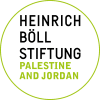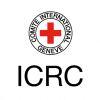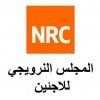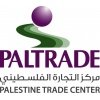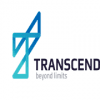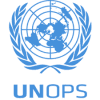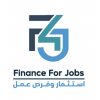Review of the ECD National Strategy 2017-2022
TERMS OF REFERENCE
Consultant
Review of the ECD National Strategy 2017-2022, conducting a situation analysis and drafting the new ECD National Strategy over the period from Tuesday, 1 April 2025 through Sunday, 31 August 2025 in West Bank, Palestine
The project titled: “Towards an inclusive ECD: comprehensive support to children with developmental delays and disabilities in the occupied Palestinian territory (oPt)” and it aims to access for people with disabilities and vulnerable people, in particular women and girls, to quality rehabilitation and education services is guaranteed. Its implementation period for the project is from January 1st, 2023, to December 31st, 2027.
The main expected results of the project are:
Children with disabilities aged 0-8 and their families/caregivers are empowered and mobilized to guarantee improved access for all to inclusive rehabilitation and education services.
The quality of rehabilitation and education services provided is sustainably improved.
Decision-makers coordinate their efforts to ensure the implementation of reference frameworks and inclusive strategies.
BACKGROUND INFORMATION
Handicap International is running its projects under the new name of Humanity & Inclusion (HI). Outraged by the injustice faced by people with disabilities and by vulnerable populations, we aspire to a world of solidarity and inclusion, enriched by our differences, where everyone can live in dignity. HI is an international, independent and impartial non-profit organization that intervenes in situations of poverty and exclusion, conflict and disaster. Working alongside people with disabilities and vulnerable populations, HI takes action and takes notice, to meet their basic needs, improve their living conditions and promote respect for their dignity and fundamental rights.
HI in Occupied Palestinian Territory (oPt):
Since 1996, HI has implemented various actions with local partners in the West Bank and the Gaza Strip. In a territory beset by chronic crises, political instability, and a declining economic and social situation since the second intifada in 2000, HI aims to respond to the needs of persons with disabilities and to make structural improvements to their lives.
Context:
In Palestine, it was found that approximately 47.9% of Palestinian households have at least one child under the age of 5 years, and children between the ages of 0-17 years constitute 44.8% of the population (MICS, 2020). This highlights the significant proportion of children in the region who need Early Child Development services (ECD).
There is a lack of integration of essential ECD services within the primary health care package, where only 34% of children in Palestine are attending early childhood care and education programs. Moreover, only 46% of children engage in any developmental activities (movement, perception and cognition, communication, and sensorial). Shockingly, 96% of children experience violent discipline, leading to significant deficits in their social and emotional development. Up to 10,000 new-born children per year require transfer to neonatal intensive care units for specialized life-saving treatment (HNO, 2023).
Available secondary data gathered by HI stress the marginalization children with disabilities continue to face in accessing education amidst the humanitarian situation in Palestine (HRP 2023). UNICEF 2021 reported 12.3% of children aged 2-17 have at least one functional challenge. The MSNA 2022, reported that the disability at the household level reached 21% (Gaza) and 9.7% (WB), of which 2.4% girls and 4.9% boys, and this is anticipated to have substantially risen after October 2023. The aforementioned emphasizes the urgent need for Early Childhood Development (ECD) services in the region.
Moreover, MSNA 2022 indicated 20% of the households showed having at least one child reporting signs of psychosocial distress, but no capacity to respond to that. With 1.8% of the households reporting at least one child with disability, 33% cannot access, at minimum, one basic service including (health and education) due to physical and/or cognitive difficulty.
They have poor access to basic services such as health, education, and employment. More than a third of children with disabilities (37.6%) had never enrolled in school and 33.8% had dropped out. While over 50% of persons with disabilities are illiterate, they have the highest unemployment rate with 87.3% and 76.4 % of adults with disabilities do not use public transportation (PCBS/ Ministry of Social Affairs, 2011). According to the UNCRPD, children with disabilities ought to be treated without discrimination and on an equal basis with their peers without disabilities to access an inclusive education system at all levels. oPt developed and adopted its National Policy on Inclusive Education in 2015, outlining its commitments to the UNCRPD and the sustainable development goals, especially SDG4. However, its implementation so far remains limited: an action plan covering 2017-2019 was only released in late 2017 and currently waiting the action plan for 2022-2024 to be released by the MOE. According to the latest PCBS data regarding the 2017 census, 27.4% of children with disabilities have never accessed education. The number of children in the age group 0-8 years is around 800,000, accounting for about 17% of the population. In oPt, there are over 1,700 preschool institutions (infant-toddler centres, kindergartens, preschool classes). The vast majority are located in the West Bank and are managed by the private sector. These centres can choose their own curriculum and are only available to a limited number of families who can afford it.
The focus on ECD is important to the Palestinian Authority. Recognizing children at risk and with developmental delays early is vital to introducing services that will enable them to catch up with their peers and reduce the severity of their impairments in later life, in many cases. Many social and health programs in oPt, where the average disability rate is estimated to be 6.9% (WHO estimates suggest the rate is higher), target children with disabilities and their families. This also highlights the urgent need to review the work completed in the ECD field between 2017-2022, conduct a situational analysis to identify gaps and challenges, and develop a new ECD National Strategy to align the efforts of key stakeholders in the field.
HI and its implementing partner, Bethlehem Arab Society for Rehabilitation (BASR), have decided to collaborate within the framework of the AC6 project, mainly focusing on Bethlehem and Hebron Governorates. The objective of the project is “Improving the quality of life of people with disabilities and vulnerable people with a holistic approach”.
Given the evolving context in Palestine, the needs of children and their families are continuously changing. Therefore, it is crucial that, as part of the AC6 project, HI in collaboration with the MoE, MoH, MoSD, and ECD National Committee members, works closely with a consultant to:
1) review the ECD National Strategy 2017-2022.
2) conduct a situational analysis for the current health, nutrition, education and social protection status of children in Palestine to identify existing gaps and challenges.
3) Based on this analysis, develop a new National ECD Strategy that better aligns the efforts of key stakeholders.
DESCRIPTION OF THE OBJECTIVE AND EXPECTED RESULTS
The primary objective of this consultancy is reviewing the achievements of the ECD National Strategy 2017-2022, develop a situational analysis, and draft the new National ECD Strategy.
The expected results of the assignment
Expected output of the consultancy:
Review of the achievement of the 2017-2022 National Strategy for ECD, in line with its’ themes and strategic objectives, specific objectives, outputs and respective responsibilities of each stakeholder involved including a justification on the reason behind not achieving some of the planned actions and commitments as mentioned in the strategy. This includes an update on all activities provided related to the interventions in health, nutrition, education and protection programmes, including their available indicators, as well as a summary documentation of the previous trainings conducted, numbers of trainees, trainees’ data if available, topics and dates/years. This covers the period 2017-2024. These updates will feed in the situational analysis mentioned in bullet point 2.
In full support and cooperation, HI will work with a consultant which will mainly be responsible for the review of the 2017-2022 National Strategy for ECD. Following this, dissemination of the review and round table for lessons learnt will be conducted in the presence of the members of ECD national committee and stakeholders.
Conducting a comprehensive situation analysis to support the development of a new Early Childhood Development (ECD) national strategy. HI will collaborate with the consultant to prepare an ECD situation assessment, incorporating input from local authorities, service providers, and community stakeholders. Following the completion of the assessment, the findings will be disseminated, and a roundtable discussion will be organized to facilitate the report's utilization. This discussion will involve key stakeholders, including representatives from the Ministry of Health (MoH), Ministry of Social Development (MOSD), and Ministry of Education (MoE), as well as members of the ECD National Committee and the ECD Thematic Working Group.
Advise on the strategical objectives and action plans based on the finding of the situational analysis and the evaluation of the achievement of the 2017-2022 National Strategy for ECD. Additionally, draft the new National Policy on ECD, including estimated budget and Intervention in collaboration with ECD national committee members.
HI will play a major role in reviewing and modifying the new national Policy on ECD, where HI will participate in ECD strategy launching meetings. In order to ensure this participation, HI will also produce evidence and support the inclusion of disability aspects in the ECD national strategy. HI will also support the dissemination of the new ECD national strategy.
DELIVERABLES
A detailed workplan with timeframe for reaching the objectives and delivering the expected results within one week of start date.
A report on the review of achievements of the national ECD strategy 2017-2022, justification for not meeting the objectives and lessons learned.
Assessment tools for situational analysis and analysis methodology to be provided to HI for validation before use.
A vision, including a set of detailed strategic plans and an action plan as a result of the previous achievements and a report on the situational analysis in collaboration with the ECD national committee members.
Draft of the new ECD National Strategy includes establishing an implementing action plan, including indicators, that incorporates emergency contingencies withing the current situation in the oPt.
Regular meetings and collaboration with HI, Dr. Sawsan Abu Sharia (Director of Maternal and Child Health Department), and the ECD National Committee members to achieve the expected objectives.
Dissemination plans for outputs of all work among ECD National Committee members.
All deliverables must be in both English and Arabic.
DURATION AND TIMELINE
The consultancy is expected to commence on Tuesday, 1 April 2025 through Sunday, 31 August 2025. The final deliverables should be submitted no later than Sunday, 31 August 2025 (21 weeks, 5 days).
QUALIFICATION AND EXPERIENCE
The consultant (individual\firm) should possess the following qualifications and experience:
Advanced degree in child development, public health, pre-primary education or a related field with at least 5 years of experience
In-depth understanding of the Nurturing Care Framework for ECD
Proven experience in conducting reviews, situational analysis, specifically in the ECD field in emergencies.
Knowledge of the current challenges faced by children in the oPt.
Strong analytical and report-writing skills.
Ability to work collaboratively with diverse stakeholders.
Fluency in Arabic and English is required.
Has a scientific and practical experience with the ECD context in Palestine.
Previous experience working with INGOs.
National only.
APPLICATION PROCESS
Interested consultants (individual\firm) are invited to submit the following documents:
A detailed proposal outlining the work methodology, work plan, and timeline.
Curriculum Vitae (CV) highlighting relevant experience and qualifications of the consultant(s).
Examples of previous similar work or assessment reports.
A financial proposal including the consultant's fee and any other associated costs.
Applications must be sent by email to this address: [email protected] with the title: “ consultant for ECD national Strategy”. By 17th February 2025
EVALUATION CRITERIA
Technical and financial Proposals will be evaluated based on the following criteria:
Relevance and feasibility of the proposed methodology and work plan.
Demonstrated experience and qualifications of the consultant (Individual\firm) .
Quality of previous work samples.
Cost-effectiveness of the financial proposal.
RESPONSIBILITIES
For the Consultant (Individual\firm)
Validate the developed situation assessment tools with HI.
Share information in round table discussions with HI and members of the ECD National Committee members.
Compile and submit comprehensive reports documenting the outcomes of the review of achievements and situational analysis.
For Humanity & Inclusion (HI)
Facilitate communication and discussions with the ECD National Committee members.
Provide access to relevant background materials and resources.
Review and approve assessment materials and reports.
Process consultant payments according to the agreed schedule and deliverables.
SUBMISSION OF APPLICATION
Bids from interested individual consultants or firms should include:
A detailed technical offer that includes the methodology and evaluation plan, an alternative/contingency plan in case the current context doesn’t allow for in person interviews/activities and timeframe.
A detailed financial offer that covers all anticipated costs (taxes, travel, accommodation, transportation, insurance, translation, etc.).
All prices shall be VAT-exclusive in ILS shekel.
Valid VAT registration number, HI will utilize Vat exemptions for successful candidates according to Palestinian Vat Tax system, in case its individual proposal and there is no registration, then the total amount will be subject to 10% deduction according to Palestinian Vat Tax system
A CV (list of CVs) detailing relevant skills and experience of the consultant and her/his team of no more than 3 pages each, including contactable referees. In case of team of experts, the Team Leader must be clarified and a hierarchy chart to be provided.
At least one sample of a relevant previous evaluation preferably for international donor funded project in a similar area or context.
In case of inquiries or questions during the submission of application, you can kindly refer to [email protected] maximum by Monday 17/02/2025.
Note: Humanity & Inclusion reserves the right to accept or reject any proposal without giving reasons and is not bound to accept the lowest or the highest bidder.
Applications submitted after the deadline of 17th February 2025 will not be considered. Selected consultants might be invited for a complementary interview. Also, candidates who only submit CVs without technical and financial offers will not be considered.
Humanity & Inclusion is committed to protecting the rights of children and opposes all forms of child exploitation and child abuse. HI contractors must commit to protecting children against exploitation and abuse.
Persons with disabilities are particularly encouraged to apply.






